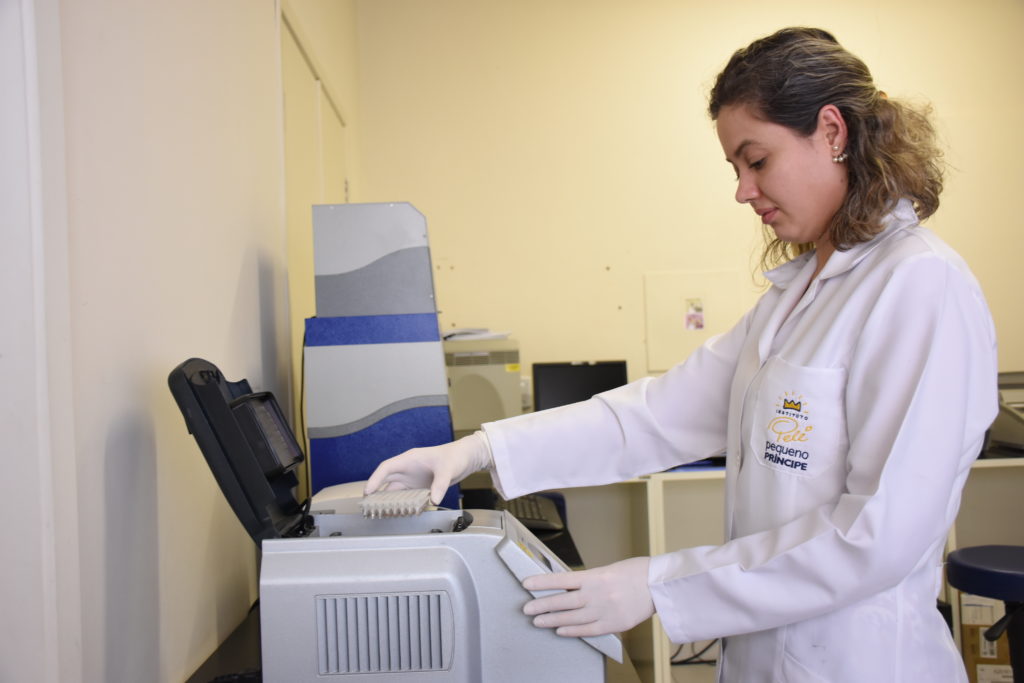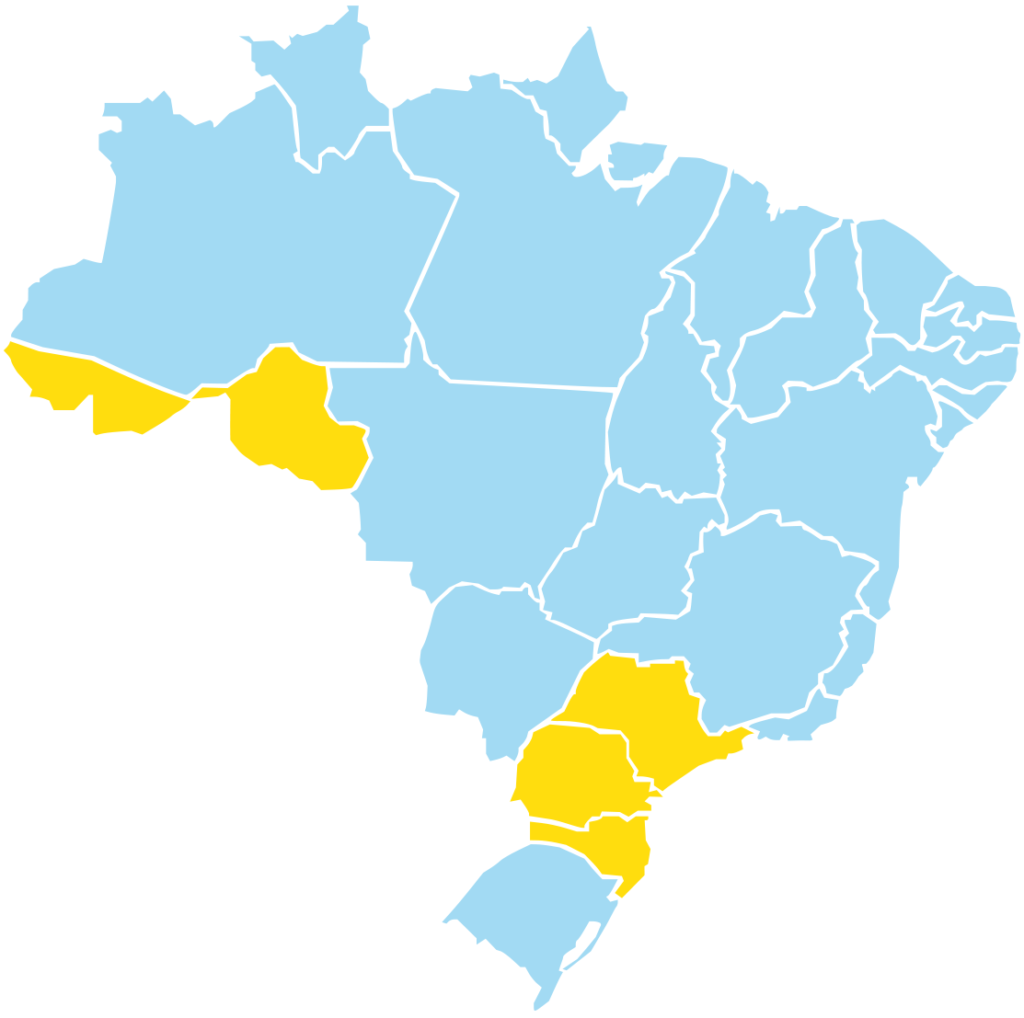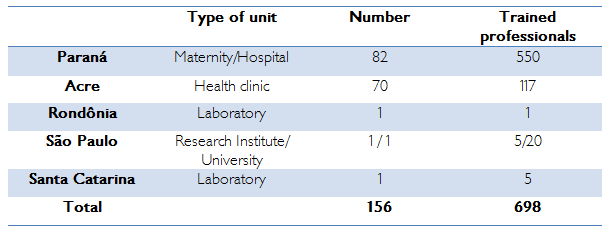150 Thousand Chances of Life project benefits children from five brazilian states
 Two drops of blood can save lives. This is the material needed for DNA tests run by researchers of Pelé Pequeno Príncipe Research Institute. By performing these exams with newborn children, it is possible to identify the genetic mutation that is linked to the predisposition to develop a pediatric cancer, the adrenal cortex tumor. The test is also able to detect primary immunodeficiencies. Through genetic testing, the early diagnosis of these diseases can save lives, because finding these illnesses in their early stages raises the chance of proper treatment and cure.
Two drops of blood can save lives. This is the material needed for DNA tests run by researchers of Pelé Pequeno Príncipe Research Institute. By performing these exams with newborn children, it is possible to identify the genetic mutation that is linked to the predisposition to develop a pediatric cancer, the adrenal cortex tumor. The test is also able to detect primary immunodeficiencies. Through genetic testing, the early diagnosis of these diseases can save lives, because finding these illnesses in their early stages raises the chance of proper treatment and cure.
 This genetic testing is part of the 150 Thousand Chances of Life project, developed by the Pelé Pequeno Príncipe Research Institute with the support of Pequeno Príncipe Hospital. Through a great national mobilization, they were able to take the project to five Brazilian states: Paraná, Acre, Rondônia, São Paulo and Santa Catarina, making it possible for more than 128,5 thousand genetic tests be completed.
This genetic testing is part of the 150 Thousand Chances of Life project, developed by the Pelé Pequeno Príncipe Research Institute with the support of Pequeno Príncipe Hospital. Through a great national mobilization, they were able to take the project to five Brazilian states: Paraná, Acre, Rondônia, São Paulo and Santa Catarina, making it possible for more than 128,5 thousand genetic tests be completed.
“Besides of giving real chances of cure to those children, this project provides information to medical and scientific communities about those diseases incidence. It also permits advances on the conduction, understanding and treatment, and allows the debate and the intervention on national and regional public policies,” explains the executive director for Pequeno Príncipe, Ety Cristina Forte Carneiro.
These are the main statistics of the project:


